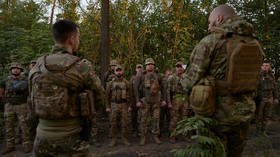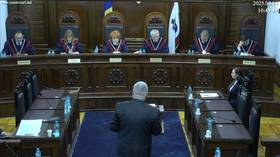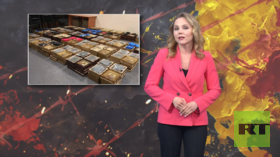Would Britain accuse Russia of hacking without evidence? It’s ‘highly likely’
Answer the following question: When Sky News asked unnamed UK government sources whether Russia hacked the Institute of Statecraft, did they reply it was: ‘somewhat likely,’ ‘highly likely,’ or ‘don’t know’?
If you said it’s ‘highly likely’ you got the answer right.
So, in an exclusive report Sky News reveals that Britain’s National Crime Agency (NCA) is investigating a cyber attack on “the little-known Institute for Statecraft”, and that sources, which are only named as being from “Whitehall,” say it’s ‘highly likely’ Russia’s military intelligence service was behind it.
Furthermore, “Chris Donnelly, a former senior Ministry of Defence civil servant who co-founded the Institute for Statecraft, said he has little doubt who hacked it, though he has no “forensic proof.”
Shady GRU, anonymous sources, ‘highly likely,’ no “forensic proof”, and slap an exclusive tag on it. It’s the classic formula for a Russia story.
The cyber-hacks have actually concentrated on the Integrity Initiative which is run by the Institute for Statecraft. The Integrity Initiative says it aims to combat “disinformation used by Russia and others.” It’s main tactic against what it perceives as propaganda is to use propaganda.
It’s also been caught tweeting anti-Jeremy Corbyn material, which isn’t good considering they’re partly-funded by the UK Foreign Office.
Only in a story about Russia and the GRU would it be acceptable to place your trust in anonymous sources and a former MoD employee who runs a transparently anti-Russia programme staffed by former spies.
The Integrity Initiative files that were hacked have been leaked over a number of months, by someone calling themselves Anonymous.
The Sky News article, which doesn’t want to undermine the insinuation that only Russia could be to blame, says there is no proof that this Anonymous group is linked to the worldwide group of activist hackers of the same name. Even if there’s no ‘forensic proof,’ surely it’s ‘highly likely’ they are?
By Simon Rite















